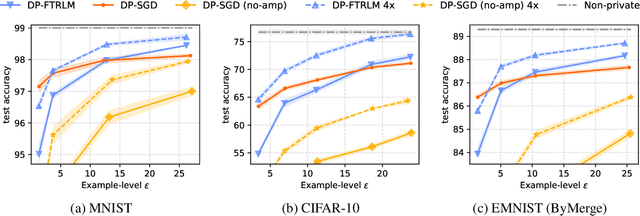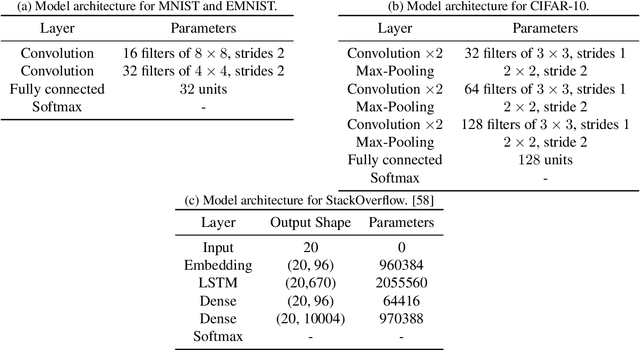Practical and Private (Deep) Learning without Sampling or Shuffling
Paper and Code
Feb 26, 2021



We consider training models with differential privacy (DP) using mini-batch gradients. The existing state-of-the-art, Differentially Private Stochastic Gradient Descent (DP-SGD), requires privacy amplification by sampling or shuffling to obtain the best privacy/accuracy/computation trade-offs. Unfortunately, the precise requirements on exact sampling and shuffling can be hard to obtain in important practical scenarios, particularly federated learning (FL). We design and analyze a DP variant of Follow-The-Regularized-Leader (DP-FTRL) that compares favorably (both theoretically and empirically) to amplified DP-SGD, while allowing for much more flexible data access patterns. DP-FTRL does not use any form of privacy amplification.
 Add to Chrome
Add to Chrome Add to Firefox
Add to Firefox Add to Edge
Add to Edge